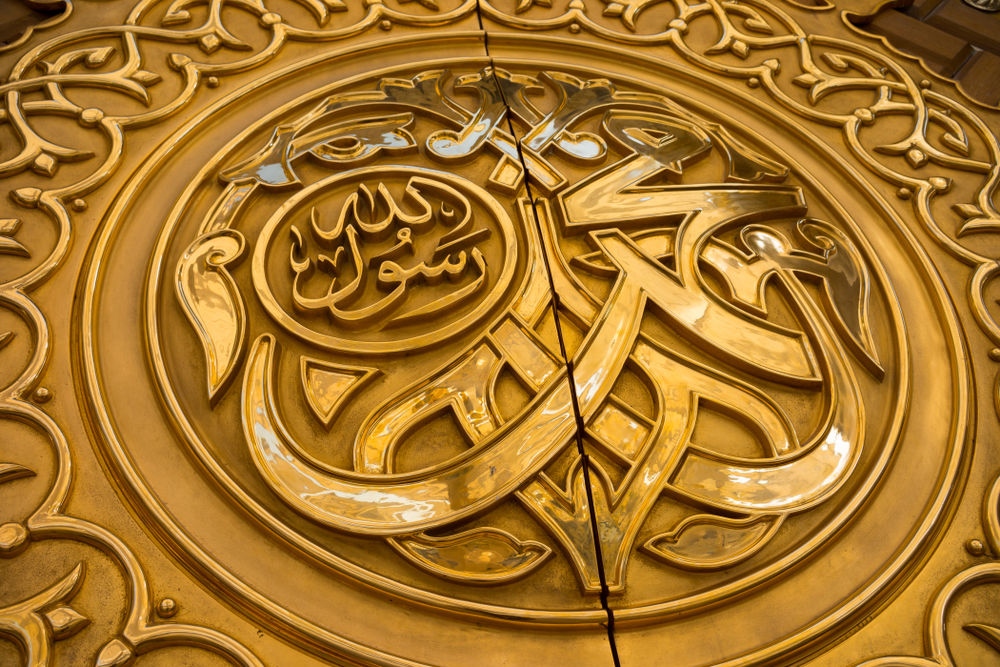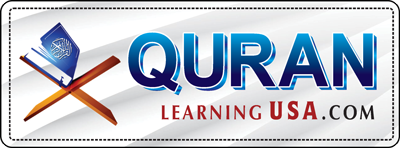
For Muslims around the world, the life of the Prophet Muhammad (PBUH) serves as a guiding light. His Sunnah encompasses all teachings of the Prophet Muhammad (PBUH), which consists of his sayings, actions, and habits. The life of Muhammad serves to guide Muslims towards virtuous living. Here are 10 Sunnahs of the Holy Prophet Muhammad (PBUH) that every Muslim should try to incorporate into their daily lives.
1. Greeting Others with Salaam: Main Among 10 Sunnahs of the Holy Prophet Muhammad (PBUH)
Strength of a Simple Greeting
The great Sunnahs foster a Muslim culture of peace, as seen when the Prophet Muhammad (PBUH) encouraged people to greet each other with “Assalamu Alaikum.” It translates to “Peace be upon you.” The Prophet recommended this greeting as it not only fosters peace but also strengthens relationships based on compassion and goodwill among people. Any kind of interaction can be transformed into one that is peaceful.
Importance of the Prophetic Sunnah
The Prophet (PBUH) said, “You will not enter Jannah until you believe, and you will not believe until you love one another. Shall I not tell you something that, if you did it, you would love one another? Spread Salaam amongst yourselves.” (Sahih Muslim).
2. Eating With One’s Right Hand
Why the Right Hand is Preferred in 10 Sunnahs of the Holy Prophet Muhammad (PBUH)
The Sunnah associated with eating with the right hand encompasses greater hygienic and spiritual practices. The Prophet Muhammad (PBUH) utilized his right hand while eating and drinking, as well as during other daily activities. This custom of using the right hand is more than etiquette, as it preserves hygiene since the right hand is ritually and socially proper.
Benefits of Fulfilling this Sunnah
Hazrat Muhammad PBUH said ‘When one of you eats, let him eat with his right hand, and when he drinks let him drink with his right hand’, (Sahih Muslim).
3. Performing Regular Prayers (Salah)
The Core of Muslims’ Life
Daily prayers (Salah) are one of the five pillars of Islam and can usually be considered as an act of worship that Muslims do. Prophet Muhammad (PBUH) stressed Salah throughout his entire life. With strictly observed Salah throughout the day, Muslims not only perform an act of worship, but also get the chance to have an uninterrupted dialogue with Allah.
The Prophet’s Prayer Consistency
The Prophet Muhammad (PBUH) reinforced the importance of prayer when he stated that “The first thing that a servant will be questioned about on the Day of Judgment is the prayer” (Sunan Ibn Majah).
4. Upkeeping of Personal Hygiene
As a Faith for Upkeeping of 10 Sunnahs of the Holy Prophet Muhammad (PBUH)
Prophet Muhammad (PBUH) believed that cleanliness and order are crucial components that form the basis of an individual. He scrubbed and encouraged the same practice to his followers to wash their hands before and after meals.
The Prophetic Teachings on Hygiene
A Muslim’s body and soul require equal amount of attention and nurturing. That is why The Prophet (PBUH) emphasized that cleanliness serves as the basis, “half of faith” (Sahih Muslim).
5. Smiling and Showing Kindness: Best Among 10 Sunnahs of the Holy Prophet Muhammad (PBUH)
The Sunnah of a Smile
Prophet Muhammad is known for being sweet and gentle (PBUH). One of Prophet Muhammad’s (PBUH) most admirable qualities was how he was able to smile at people and make them feel comfortable and loved. He was always smiling, and that was the simplest way to spread happiness and warmth.
The Impact of Smiling
The Prophet (PBUH) said, “Smiling in the face of your brother is an act of charity.” (Sahih Bukhari). This means that…even the small gestures of kindness, such as smiling, have great value in Islam.
6. Fasting on Mondays and Thursdays
The Spiritual Benefits of Fasting
The Prophet Muhammad (PBUH) observed the fasts on Mondays and Thursdays. It is a Sunnah that is carried out by many Muslims to this day. This optional fasting is especially recommended because it has wonderful spiritual benefits. It includes cleansing of the heart and gaining the mercy of Allah.
The Practice of the Prophet
The Prophet (PBUH) said, “Deeds are presented on Mondays and Thursdays, and I like my deeds when fasting.” (Sunan Tirmidhi).
7. Seeking Knowledge
The Importance of Knowledge
The Prophet Muhammad (PBUH) deemed the pursuit of knowledge important, saying that seeking educational material is one of the pathways to enlightenment and spiritual growth. The Prophet (PBUH) said, “Seeking knowledge is obligatory upon every Muslim.” (Sunan Ibn Majah).
Knowledge as Worship
According to the Prophet (PBUH), knowledge needs to be acquired not just for religious purposes, but for all aspects of life.
8. Treating Neighbors with Respect
The Prophet’s Teachings on Neighborliness
It is undeniable that Muhammad (PBUH) paid attention to the rights of the neighbors. The Prophet (PBUH) urged Muslims not only to fulfill their duties towards those who live around them but also to foster a caring relationship with them.
The Instructions of Muhammad on Treating Neighbors
Muhammad explained it easily when he is quoted as having said, “Jibril (Gabriel) kept on recommending to me the good treatment of neighbors until I thought he would make them heirs.” (Sahih Bukhari). There are two lessons for us here: One, good treatment of neighbors is core to Islam. Second, maintaining the relationship with neighbors strengthens the society.
9. Offering Charity (Sadaqah)
One of the most crucial Sharia defined obligations for Muslims is to give charity. There is no detail left unattended in the Islam’s and surely Mohammed’s teachings. Mohammed himself was a person known for being really giving.
Testimony to the saying is when the prophet is quoted as saying, “The best of you are those who are most beneficial to others” (Daraqutni). All the acts done to promote social justice, along with helping others in need, are the responsibility of a Muslim. Charity, monetary or otherwise, becomes a part of the everyday life of a Muslim.
10. Making Du’a (Supplication)
The Power of Du’a
Prophet Muhammad (PBUH) took his time to talk to Allah through du’a (supplication). He made dua in every aspect of his life, like looking for guidance, forgiveness, and mercy.
The Importance of Du’a in Islam
Allah’s Messenger, peace and blessings be upon him said: “Make du’a to Allah while you are certain that He will answer you.” (Tirmidhi). Muslims, by making dua strengthens the spiritual tie between themselves and Allah Ta’ala, depend on Allah subhanahu wa ta’ala’s mercy and help in all affairs of life.
Conclusion
These might seem like basic steps, for most fundamental steps, however, when brought together in perfect synergetic harmony, a whole results in eloquence and grace to life. The 10 Sunnahs Of The Holy Prophet Muhammad PBUH aid Muslims in achieving virtue and discipline while serving on a meaningful path in life. His life in itself is a guide and can form the foundation through which peace, compassion, love, and devotion are attained.
FAQs
1. What Does the Sunnah of the Prophet Muhammad (PBUH) Mean?
The Sunnah encompasses everything the Prophet Muhammad (PBUH) did, said, and all his actions. For example, the habits and ommissions through his life also comes under sunnah.
2. What Are The Key Benefits Of Following The Sunnah Of The Prophet Muhammad (PBUH)?
Following the 10 Sunnahs of the Prophet Muhammad (PBUH) provides direction for every person and cope with everyday challenges. For each area mentioned, the Sunnah offers essential guidance and instructions to everyone.
3. Can the Sunnah be practiced by persons who are not fully polished?
Without a doubt, the Sunnah can and should be worked towards to achieve refinement. Prophet Muhammad (PBUH) emphasized that one should work towards the betterment of deeds, but certainly understood the flaws in human nature.
4. Is it essential to follow all the Sunnah of the Prophet Muhammad PBUH?
While it is widely accepted that to achieve maximum rewards, all Sunnah of the Prophet must be diligently followed. It is however not compulsory to adhere to all of them. Some are related to specific contexts, other recommended rather than obligatory.
5. What are the practical ways I can infuse my daily life with Sunnah?
You may integrate Sunnah in your daily life by taking small, realistic actions. Focus on the primary ones first, such as receiving people with Salaam, performing Salah, being clean, being kind, and helping others.
